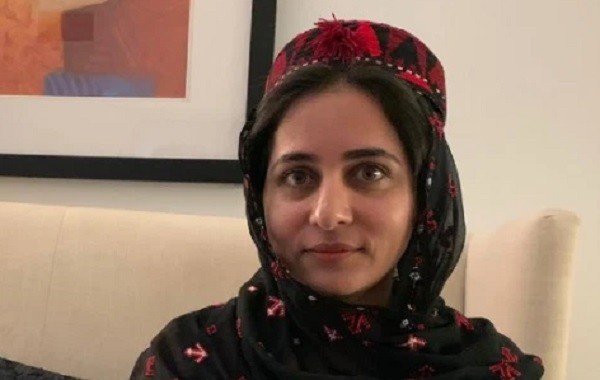Pakistani human rights activist Karima Mehrab Baloch has been found dead in the Canadian city of Toronto, where she had been living for five years in exile.
Police say they have found the body of 37-year-old Karima Baloch on Monday evening. No immediate cause of death was given by law enforcement.
“It is currently being investigated as a non-criminal death and there are not believed to be any suspicious circumstances,” said Caroline de Kloet, a police media relations officer.
Lateef Johar Baloch, her close friend and fellow activist who also lives in Toronto, told the BBC that Karima had recently received anonymous threats warning someone would send her a "Christmas gift" and "teach her a lesson".
Meanwhile, Lateef Baloch told Al Jazeera by telephone, “I am with her family [and] I was there when police came to us and confirmed that they found her body.”
“It is confirmed that she is dead, and her body was found from water near Toronto.”
Karima had earlier been reported missing by Toronto police, having last been seen at about 3:00 pm local time (20:00 GMT) on Sunday in the Bay Street and Queens Quay West area, according to a police statement.
Rights groups and Pakistani rights activists, particularly those living on asylum status in foreign countries, have called for a thorough investigation into her death, alleging it may have been carried out by state actors.
Karima was a prominent ethnic Baloch rights activist, having led the Baloch Student Organisation’s Azad faction (BSO-A), an organisation at the forefront of the political movement calling for the independence of Pakistan’s ethnic Baloch areas and documenting alleged human rights violations there.
Baloch activists, particularly those calling for independence, have been subject for years to a sustained and documented campaign of enforced disappearances and extrajudicial killings, local and international rights groups say.
Balochistan, located in Pakistan’s southwest, is the country’s largest but least populated province and is rich in minerals and other resources.
Baloch rights groups have long decried what they term Pakistan’s extractive policy towards the region, mining it for resources but leaving it languishing at the bottom of most socioeconomic indicators in the South Asian country.
For more than a decade, armed ethnic Baloch groups have also been fighting a separatist war against Pakistani security forces, killing many Pakistani security forces and civilians in attacks they say are aimed at achieving independence.
Pakistan’s military routinely denies allegations of rights abuses, saying most of the region’s “missing people” are members of armed groups who fled their homes voluntarily.
Karima was one of the most prominent voices calling for justice for political activists who were allegedly abducted or killed by Pakistan’s intelligence services. She took over the leadership of the BSO-A after the disappearance of its previous head, Zahid Baloch, in 2014.
In 2016, the BBC named her as one of its 100 “inspirational and influential women” for that year, citing her activism.
Facing threats to her life, she fled to Canada and was granted permanent political asylum in 2017. - BBC, Aljazeera









মন্তব্যসমূহ (০) কমেন্ট করতে ক্লিক করুন